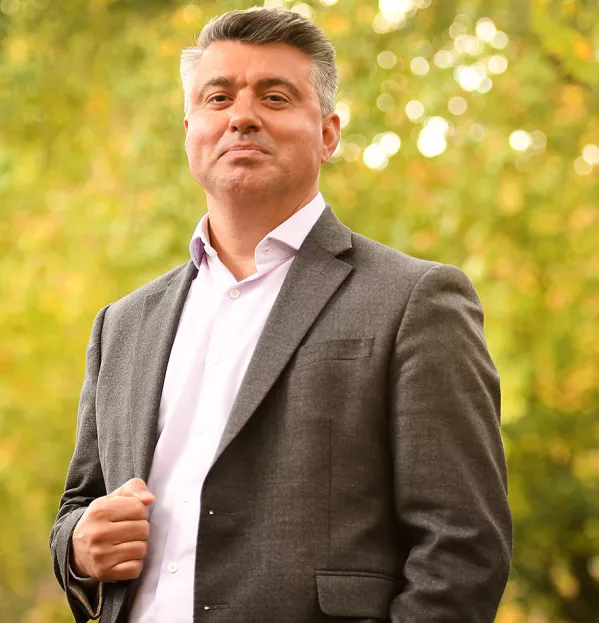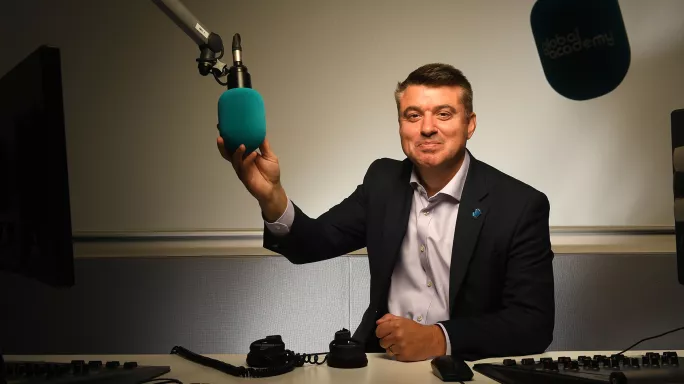- Home
- Leadership
- Strategy
- 10 questions with... Simon Connell
10 questions with... Simon Connell

Simon Connell is chief executive of the Baker Dearing Educational Trust, the charity that supports the 44 university technical colleges (UTCs) across England and was founded in 2009.
Since being appointed, he has seen huge growth in the number of students in UTCs and last year, two new UTCs were approved for Doncaster and Southampton as provision continues to grow.
He speaks to Tes about his own time at school and the impact one particular teacher had on his education trajectory. He also talks about his move from the business world into education and why listening is such an important skill in leadership.
1. What were the best things about your time at school?
I loved maths. I had a maths teacher who taught me for seven years. He had taught at the school for 50 years and his name was Geoff Buckwell.
My father, my grandfather and my great-grandfather had all been black-cab drivers in London, yet Mr Buckwell got me into the University of Cambridge to study maths. So that was the best thing about my school. He gave me the confidence and belief - you can have the ability but if you don’t have the confidence and belief you won’t get anywhere in life.
Mr Buckwell was a brilliantly gifted mathematician and enthusiastic teacher. It takes a real talent to make group theory fun! Like many maths students, the lesson introducing Euler’s identity was by far and away the most memorable and changed my view of the subject forever.
2. What were the worst things about school?
Modern languages. It’s a nice thing for some people, and my daughter is studying French now at university, and I’m married to a linguist - but for me, it was the thing I hated most about school.
I studied French and German. I liked their mathematicians but not their languages! I never messed about, missed lessons or didn’t engage - I suppose I was a diligent student - but that didn’t mean I was good at languages or enjoyed them.
3. Why did you decide to work in education?
I was fortunate that when I left university I went to work in the City of London and had a successful career in finance. I got to the ripe old age of 40 and realised I wanted to do something different.
Because of my personal experience - it’s a cliché, but my life was transformed by my maths teacher - I therefore wanted to give something back, and made the change from finance to education.
When I chose to move into education I didn’t know if it would be the right decision. I was fortunate to be able to afford to try something that I was genuinely passionate about. It was a big change: the pace, the priorities, the people - but that’s why I wanted to pivot into education.
Of course, it took time to adjust, but meeting Lord Baker and working with UTCs was when I realised I had made the right choice and have never looked back.
4. What has been your proudest moment?
It would be when we were granted the two new UTCs in August this year in Doncaster and Southampton.
The Department for Education has been supportive of everything we have done. More recently it has started saying really nice things - and it seems like the department gets it. But actions speak louder than words, and to be granted two new UTCs after a five-year wait is a stamp of approval that means Baker Dearing and the UTC movement are in a really good place.
The announcement was also a real boon for everyone working in the UTC network as it validated the work done by principals, chairs and staff.
All of these people put a huge amount of effort into supporting young people for all of these years, and the good news was down to them, too, not just what Baker Dearing has been doing nationally.
5. Do you have any regrets?
We’ve had to close a few UTCs and, with hindsight, we could have battled a bit harder…it could have been different. And maybe we should have acted sooner when we saw the warning signs.
These experiences have helped to inform our approach to the problems faced by other UTCs, but it is still a wrench. No one comes into education to close schools.
6. What are the best aspects of our schooling system?
I think if you’re an able pupil, the system is pretty good. The focus on academics and exams and all of that…life is pretty good for you. And that’s been the government’s focus.
Those students who have an incredible aptitude for technical subjects and the ability to think creatively have perhaps been less favoured by the government’s reforms.

Although the roll-out of T levels has gone some way to redressing the balance, I think you’ll still find that those students who can stick to the straight and narrow of GCSEs, A levels and then university are the main beneficiaries of the current education system.
7. What do you think needs to be changed in education?
There are so many young people in secondary schools today who are in a system that is not designed for them to succeed.
These young people become aware, as they go through school, that the system is not set up to support them, and so if you are a young person who is not interested in an academic diet, then, because of the way the system is, you find yourself trapped.
And this contributes to so many other issues: attendance, mental health, self-worth. The country is suffering as a consequence - there is so much in-built talent among these young people that if they had the right pathways at school they would go on to do amazing things.
I know this is true because we are fortunate that many of these young people come to us at 14 and you can see the journey they go on.
But I think about all of the others that, for whatever reason, won’t. That’s the tragedy of the system at the moment - it’s not there for all pupils, and particularly, it doesn’t work for those who need it most.
8. If you were the education secretary, what would you do on your first day in post?
Scrap the EBacc.
9. Looking back over 12 months, who has made the biggest difference in education?
I’m quite a fan of Gillian Keegan. She’s got a lot on her plate with teacher strikes and RAAC concrete, but I think her background and values are closely aligned with what we believe in. She’s a breath of fresh air.
But with any politician, there are circumstances and challenges and barriers stopping you from doing what you want. But so far I think she’s been doing a good job.
The announcement of two new UTCs made on her watch has obviously been praised by us. But there were also a number of other schools approved at the same time. The successful delivery of these, or even making good progress towards them, will be a great legacy for Keegan.
We know she is passionate about technical education and helping expand its delivery in secondary schools will greatly strengthen that legacy.
10. What has been the most important lesson you have learned?
I think it’s the importance of listening. I visit two or three UTCs a week and I always learn something new. I have worked at Baker Dearing for almost 10 years, and have run it for four and a half, and I just keep learning.
The most important lesson I’ve learned is you have two ears and one mouth, so listen more than you talk.
Simon Connell was talking to senior analyst Gráinne Hallahan
You need a Tes subscription to read this article
Subscribe now to read this article and get other subscriber-only content:
- Unlimited access to all Tes magazine content
- Exclusive subscriber-only stories
- Award-winning email newsletters
Already a subscriber? Log in
You need a subscription to read this article
Subscribe now to read this article and get other subscriber-only content, including:
- Unlimited access to all Tes magazine content
- Exclusive subscriber-only stories
- Award-winning email newsletters
topics in this article



